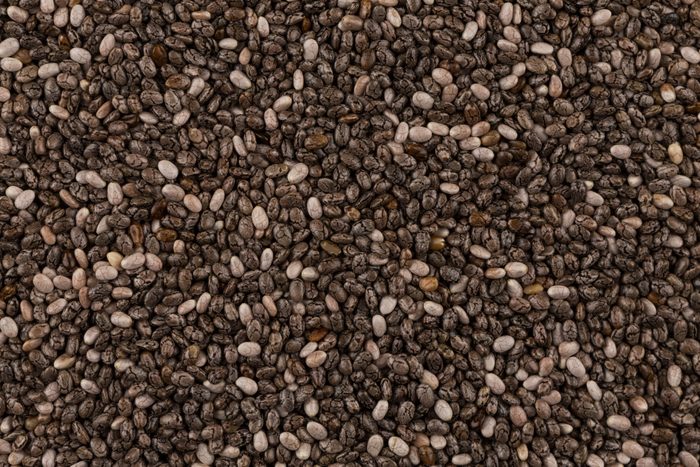
Chia Seeds
Ch-ch-chia! Chia seeds—particularly the Salba variety—are high in iron, folate, calcium, magnesium, omega-3 fatty acids and soluble fiber. The superseed’s calcium and magnesium promote bone and dental health, while the omega-3s help your heart by lowering triglycerides, the bad fats in your blood that can cause heart disease. Their soluble fiber helps decrease cholesterol, stabilize blood sugar, and make you feel full longer. Also try incorporating these 11 superfoods into your diet.
Eat them: Add to smoothies, yogurt, cereal, salads, or muffin batter, or make overnight chia seed oatmeal. Always buy fresh from a market; never eat what came in a craft kit.
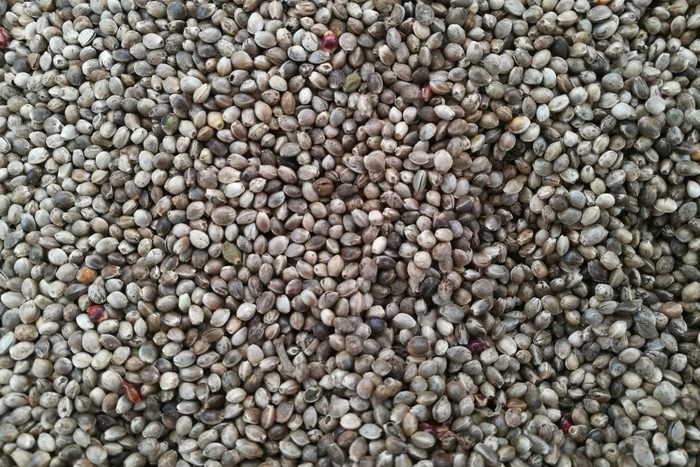
Hemp Seeds
Not just for hippies, these superseeds are a great source of complete protein and omega-3 and omega-6 fatty acids. They also contain phytosterols, plant-based compounds that help lower cholesterol levels. Note: While hemp and marijuana are both members of the cannabis family, hemp doesn’t contain THC, marijuana’s active ingredient. Eating hemp seeds will not give you the same effect as smoking marijuana.
Eat them: Toss in salads, shakes, or smoothies, or sprinkle over cereal or yogurt. They also add texture to baked goods. Just make sure you know about the slight nutritional differences between hemp hearts and hemp seeds first.
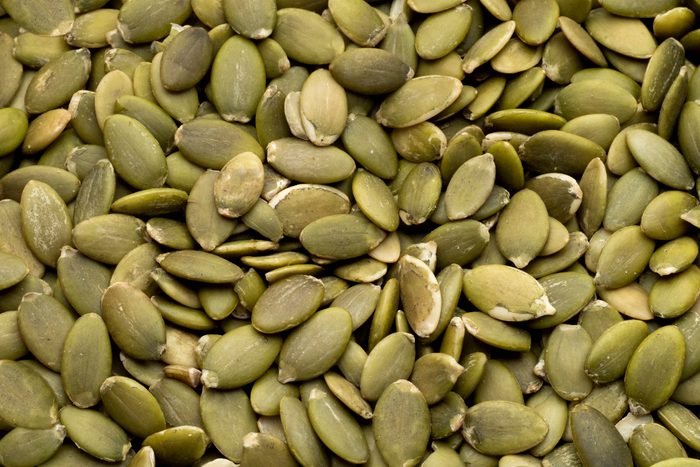
Pumpkin Seeds
Also known as pepitas, these superseeds are a source of B vitamins, iron, magnesium, zinc, and protein, and are particularly rich in the amino acid tryptophan, which may help lower anxiety. Pumpkin seeds also have high levels of essential fatty acids that help keep blood vessels healthy and lower bad cholesterol.
Eat them: Snack on them raw or roasted. Add to granola bars and trail mix recipes; or use to garnish soup. Pumpkin seed oil can boost salad dressings and dips (although cooking may destroy some of its nutritional properties).
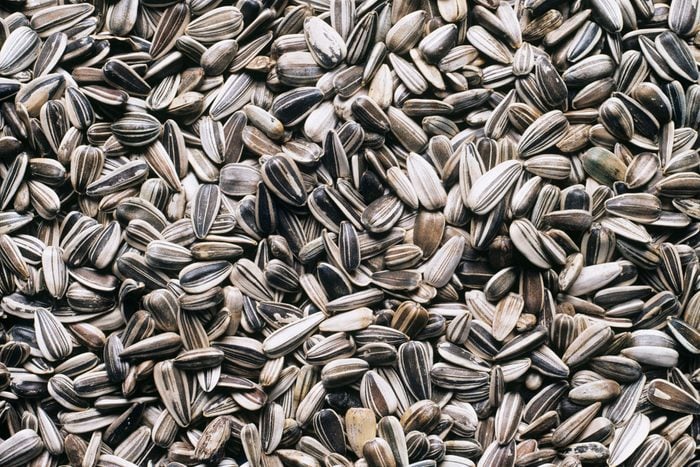
Sunflower Seeds
These underrated superseeds are an excellent source of B vitamins, including folate (which helps prevent birth defects), and vitamin E, a powerful antioxidant that protects cells from damage, helps maintain healthy hair and skin, and may work to prevent cancer. Sunflower seeds are also rich in protein and heart-healthy fats.
Eat them: Munch them by the handful, or add them to cookie or muffin recipes, salads, and stir-fries. Avoid salted versions, which often have high levels of sodium.
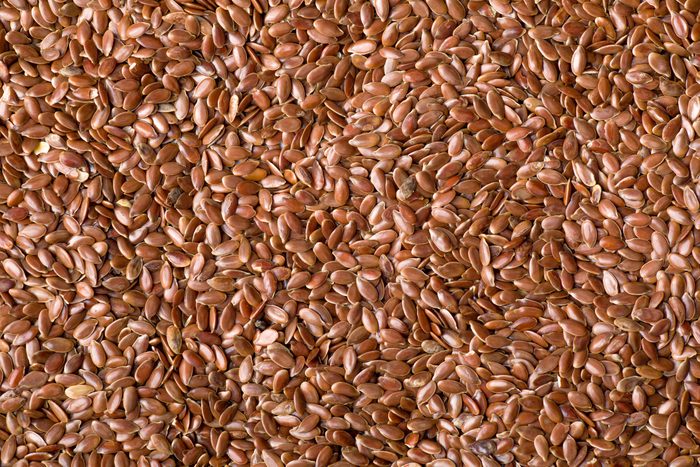
Flaxseeds
These little, brown, nutty-flavored superseeds are a great source of soluble fiber, which helps lower cholesterol, makes you feel fuller longer, and aids in stabilizing blood sugar levels. Flaxseeds are packed with omega-3 fatty acid, which benefits eye and brain health, and can help lower triglycerides. High in lignans, a plant-like form of estrogen, they may also help prevent certain cancers. Here’s how you can get more fiber in your diet without even trying.
Eat them: Flaxseed shells are hard, so grind them in a blender or coffee grinder first. Otherwise the seeds can pass through your body undigested, prohibiting the absorption of the seeds’ valuable omega-3 content. Add the coarse or finely ground superseeds to smoothies, shakes, yogurt, oatmeal, cereal, casseroles, and when baking. Note: Keep ground flaxseeds in an airtight container in your refrigerator. (Learn how the nutritional benefits of flaxseeds compare to chia seeds.)
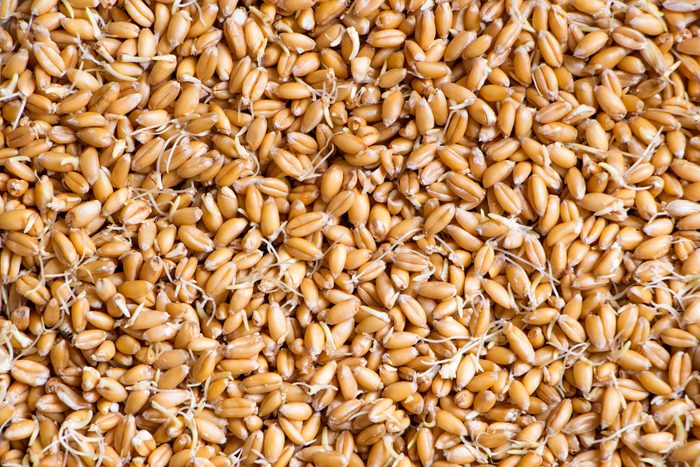
Wheat Germ
The nutritional powerhouse of the wheat kernel, wheat germ is loaded with protein, iron, and B vitamins such as folate. The high fiber content of this superseed helps prevent constipation and keeps your appetite in check. And wheat germ is low on the glycemic index, so it doesn’t spike your blood sugar.
Eat it: Wheat germ makes a great addition to smoothies, hot cereals, baking and cooking recipes. Because its healthy polyunsaturated fats can quickly turn rancid, keep wheat germ in a tightly sealed container in the freezer for optimum freshness.